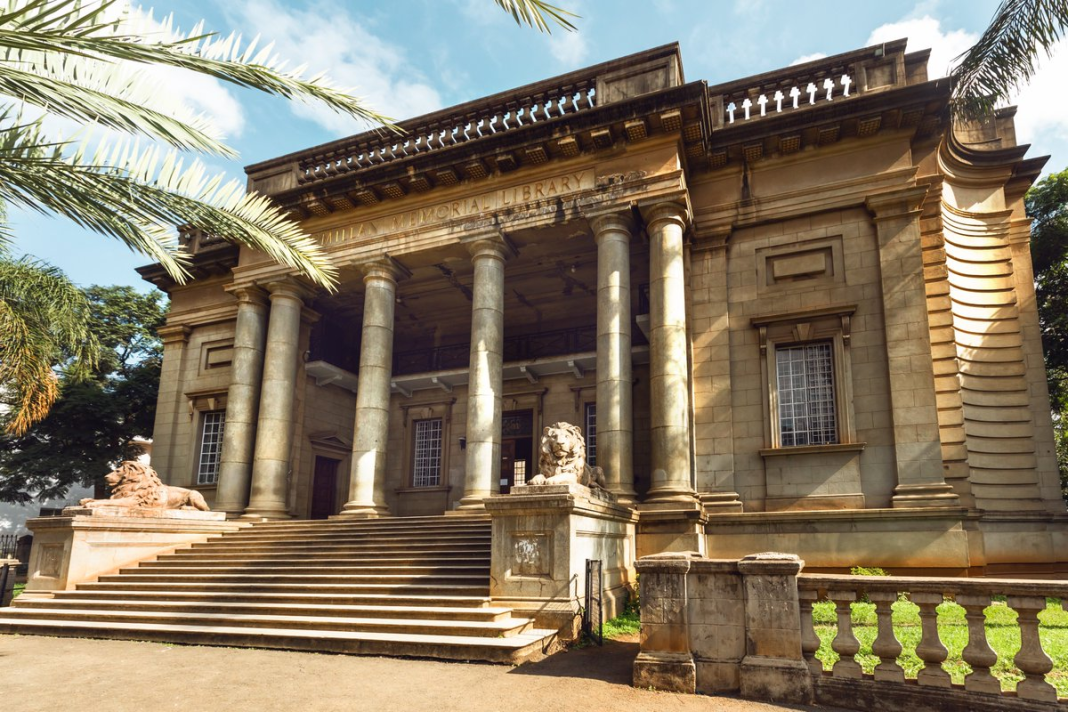In 1931, the McMillan Memorial Library, Nairobi’s oldest book-reading space, opened its doors, initially catering exclusively to European settlers in the racially segregated Kenya under British rule, joining the early league of Kenyan Libraries.
Named after American settler McMillan who arrived in Kenya in the early 1900s, the library, Kenya’s second oldest after the Seif bin Salim Library in Mombasa, was established by Lady Lucie McMillan in memory of her late husband, Sir William Northrup McMillan.
> Kiambu Farmer Kate Wambugu Generating Millions From Apples
Spanning 2,040 square metres across two storeys, the library was overseen by trustees appointed by Lady McMillan, and its access remained restricted to white patrons until 1958 when it was bequeathed to the Nairobi City Council, who remain its custodians to this day.
Fast forward to 2023, 92 years since its inception, Kenyans adorned in the fashion of the era flooded into the iconic landmark building in a commemorative event doubling as a fundraiser for its refurbishment and an affirmation of Nairobi’s public libraries.
Book Bunk, a Kenyan non-profit organization dedicated to restoring and reclaiming public libraries, spearheaded the restoration of this UNESCO-listed heritage site. The brainchild of Wachuka and novelist Wanjiru Koinange, Book Bunk sought to transform these historic spaces into inclusive hubs for archiving and sharing collective memories, creative pursuits, and technological access.
While commendable, such efforts must extend further, particularly in regions where homophobia prevails and same-sex relationships are criminalized. This inclusivity should encompass the incorporation of queer literature without exception.
Arinze Ifeakandu, a 29-year-old Nigerian writer, exemplifies the importance of such representation. Growing up in northern Nigeria, Ifeakandu struggled to find literature reflecting his experiences as a queer individual. His award-winning debut short story collection, “God’s Children Are Little Broken Things,” offers a poignant portrayal of queer life in present-day Nigeria.
In 2023, Ifeakandu clinched the £20,000 Swansea University Dylan Thomas Prize, lauded for its bold, refreshing narrative exploring queer love and loneliness in Nigerian society. Ifeakandu’s narrative resonates deeply with LGBTQIA+ individuals navigating conservative, homophobic environments.
Sexual Orientation
However, acceptance of LGBTQIA+ individuals remains a contentious issue in predominantly conservative African societies. Library materials and programs related to sexual orientation and gender identity often provoke controversy, leading to self-censorship among librarians and exclusion of LGBTQIA+ resources.
Public libraries, including school and academic libraries, must commit to serving and representing their entire community, irrespective of sexual orientation or gender identity. They should provide welcoming environments and resources that cater to the diverse needs of LGBTQIA+ individuals.
Ultimately, libraries have a responsibility to ensure equitable access to information and services for all patrons, fostering inclusivity and respect within their communities.

